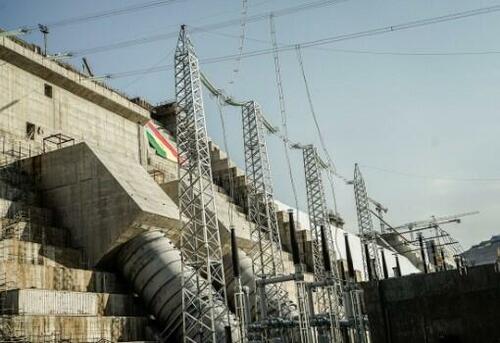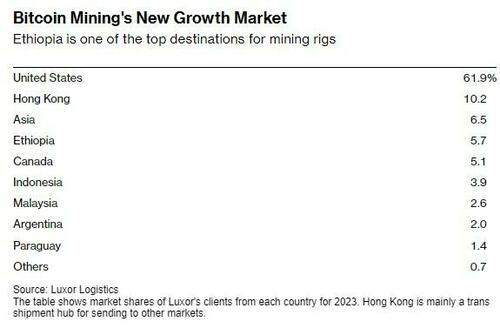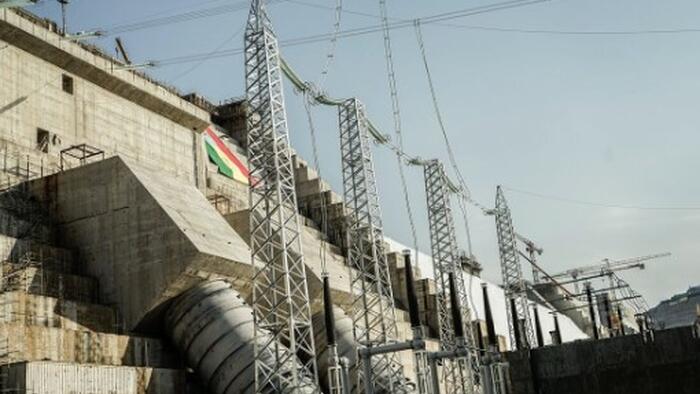Chinese language bitcoin miners have formally arrived in Ethiopia.
With China banning bitcoin mining about two years in the past, many miners look to be heading to Africa’s largest dam, the just lately constructed Grand Ethiopian Renaissance Dam, in keeping with a brand new article from Bloomberg.
Nuo Xu, founding father of China Digital Mining Affiliation, informed Bloomberg: “Ethiopia will turn out to be some of the in style locations for Chinese language miners.”
There they’re being lured by among the most cost-effective power prices on the earth – and the dam is offering energy to run miners at electrical energy substations.
Ethiopia’s nearer ties with China and the development of a $4.8 billion dam by Chinese language corporations for electrical energy provide underscore the transfer, the report says. The change of location comes as local weather considerations and power shortages elsewhere on the earth have prompted some backlash in opposition to the profitable Bitcoin mining trade.
This makes Ethiopia a uniquely interesting prospect, although it now faces competitors in locations like Texas, Bloomberg writes. Kazakhstan and Iran initially welcomed Bitcoin mining, however finally turned on the sector as a consequence of its large power use.

Jaran Mellerud, chief government of Hashlabs Mining, stated: “Firstly, nations can run out of obtainable electrical energy, leaving no room for miners to develop. Secondly, miners can out of the blue be deemed unwelcome by the federal government and be compelled to pack up and go away.”
Ethiopian officers are nonetheless cautious about Bitcoin mining’s contentious nature, trade insiders reveal, prioritizing authorities relations. Regardless of new energy sources, almost half the inhabitants lacks electrical energy, making mining a delicate problem but a promising avenue for overseas foreign money.
The competitors for electrical energy between miners, factories, and households can result in political points as a result of sector’s excessive energy demand. Bloomberg writes that in Kazakhstan, new restrictions and taxes devastated the mining trade, leaving services just like the one owned by Hashlabs co-founder Alen Makhmetov unused.

Moreover, Bitcoin mining’s environmental impression, notably its contribution to world warming, is beneath scrutiny regardless of claims of shifting in the direction of clear power. A United Nations College research discovered that two-thirds of the facility for Bitcoin mining in 2020 and 2021 got here from fossil fuels, highlighting the trade’s sustainability challenges. Bitcoin advocates level to the truth that nuclear power is lastly beginning to turn out to be mainstream in a number of locations internationally.
In the meantime the nationwide energy monopoly in Ethiopia has secured agreements with 21 Bitcoin miners, predominantly Chinese language, making clear the nation’s rising position within the sector.
In a latest article known as “Why I Bitcoin”, Zero Hedge contributor Quoth the Raven wrote:
“If the folks need the Bitcoin community, and so they have energy and an Web connection, they’re going to get it. The community is sort of a slippery fish somebody tries to carry onto — the more durable you maintain it and the extra you attempt to management it, the faster it slips out of your grasp. If Canada bans it, it’ll drift to Mexico. If Mexico bans it, nodes will drift to Mauritius. If Mauritius bans it, nodes will drift to Russia. There’s all the time going to be someplace on the globe – at the least for the quick to mid-term proper now – that’s going to embrace Bitcoin.”
On this case, that place is – at the least for now – Ethiopia.
Loading…

